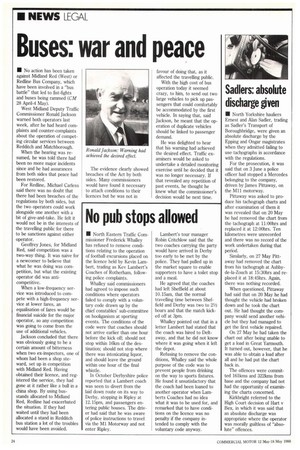Sadlers: absolute discharge given
Page 34

If you've noticed an error in this article please click here to report it so we can fix it.
• North Yorkshire hauliers Ernest and Alan Sadler, trading as Sadler's Transport of Boroughbridge, were given an absolute discharge by the Epping and Ongar magistrates when they admitted failing to use tachographs in accordance with the regulations.
For the prosecution, it was said that on 3 June a police officer had stopped a Mercedes belonging to the company, driven by James Pittaway, on the Mll motorway.
Pittaway was asked to produce his tachograph charts and after examination of them it was revealed that on 20 May he had removed the chart from the tachograph at 11:00hrs and replaced it at 12:00hrs. Ten kilometres were unrecorded and there was no record of the work undertaken during that period.
Similarly, on 27 May Pittaway had removed the chart from his tachograph at Ashbyde-la-Zouch at 15:30hrs and replaced it at 18:45hrs. Again, there was nothing recorded.
When questioned, Pittaway had said that on 20 May he had thought the vehicle had broken down and he took the chart out. He had thought the company would send another vehicle but they had managed to get the first vehicle repaired.
On 27 May he had taken the chart out after being unable to get a load in Great Yarmouth. It turned out, however, that he was able to obtain a load after all and he had put the chart back in.
The offences were committed 161kms and 322kins from base and the company had not had the opportunity of examining the charts concerned.
Kirkbright referred to the High Court decision of Hart v Bex, in which it was said that an absolute discharge was appropriate where the operator was morally guiltless of "absolute" offences.
















































































































